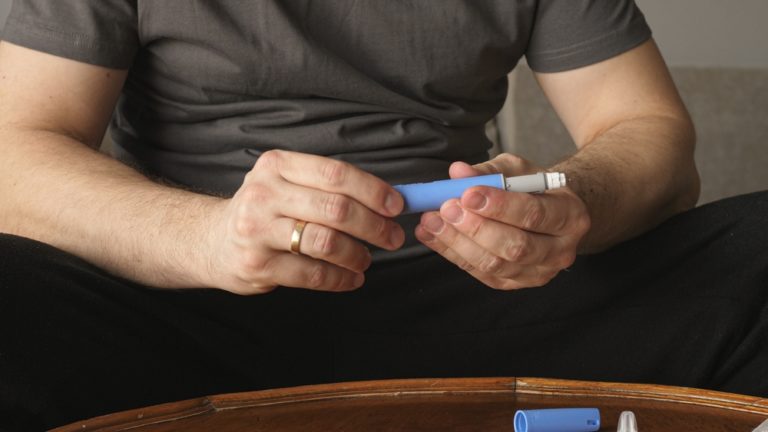Learn about common medications used to treat iron deficiency and their differences.
A new study revealed that people’s iron intake significantly decreased between 1998 and 2018. The decrease in iron intake has led to between 2.2% and 10% of the population suffering from iron-deficiency anemia.
The cause may be due to people becoming vegans or vegetarians and eating less meat. There can also be more serious causes such as blood loss or cancers. People with iron deficiency usually take ferrous fumarate 300mg, ferrous sulfate 300mg, or ferrous gluconate 300mg on a regular basis.
Find out more about these common medications for iron deficiency and how they differ below. We will also explain why iron is essential to the human body.
Why do people need Iron?
Iron is an essential mineral for human growth and development. Red blood cells carry oxygen from the lungs to every part of your body using hemoglobin, a protein produced by using iron. Iron is also necessary for the protein myoglobin, which supplies muscles with oxygen.
The amount of iron you need depends on your age, sex, diet, and other factors. For example, if you’re vegetarian or vegan, you may need more iron supplementation than someone who eats meat. When consumed by food, iron is available in two forms. The two forms of iron are heme and non-heme. Heme iron is only naturally found in animal proteins, including lean meat, seafood, and poultry.
You can find non-heme iron in plant foods and iron-fortified foods. Some plant-based foods full of iron are white beans, lentils, spinach, kidney beans, and peas.
Iron deficiency can lead to anemia if non-meat eaters don’t consume these foods or take supplements. Other plant sources of iron include breakfast cereals fortified with iron, nuts, and dried fruits.
Key things to know if considering taking Iron supplements.
Most people know that taking the wrong dosage can cause problems such as stomach upset, but there are a few other things you need to keep in mind.
- The use of delayed-release capsules is not recommended, as the body needs to absorb iron earlier in the digestive process.
- Vitamin C is not proven to enhance absorption.
- If you have ongoing blood loss, bowel problems, or kidney disease, oral iron may not be effective for you.
- As a general rule, take one dose per day or alternate days.
- Dosing alternate days may improve absorption.
- People may tolerate iron better with food or milk, but it may reduce absorption.
- If you’re experiencing side effects, you may want to consider a formulation that has lower elemental iron content, such as ferrous gluconate.
- For those who continue to have problems with taking oral iron, doctors will sometimes recommend that IV iron can be a better option.
How do you know if you’re not receiving enough Iron?
Most people in Canada do not have to worry about iron deficiency. Although, certain groups of people are more likely to suffer from iron deficiency anemia than others. These people include:
- Vegans or Vegetarians
- Pregnant women
- Women and teenage girls with heavy periods
- Premature or low birth weight infants
- People who donate blood often
- Those with cancer, GI disorders, or heart failure
Some of the signs and symptoms of iron deficiency are increased tiredness, pale skin, or muscle cramps. If you have similar symptoms, you should consider speaking with a doctor.
You can also book an appointment to speak with an online doctor on Walk-In’s virtual care platform.
<
What Is Ferrous Fumarate 300mg?
Ferrous fumarate is a medicine used to treat and prevent iron deficiency anaemia. You can take ferrous fumarate 300mg in various forms including tablets, capsules or as a liquid.
It is best to take ferrous fumarate on an empty stomach or at least two hours after eating. You should also avoid consuming tea, coffee, or dairy products at least two hours before and after taking the medication. Doing so will decrease the absorption of iron supplement. Common side effects include stomach upset, constipation, and dark-coloured stools.
What Is Ferrous Sulfate 300mg?
Ferrous sulfate (or sulphate) is a medicine used to treat and prevent iron deficiency. Ferrous sulfate comes as tablets, or as drops that can be swallowed. There are modified-release tablets and capsules of ferrous sulfate, but they may not be absorbed as well.
What Is Ferrous Gluconate 300mg?
Ferrous gluconate 300mg usually comes in the form of a tablet. It is also a medication used for the treatment and prevention of iron deficiency states. It can carry less side effects due to the relatively lower elemental iron content.
What is the difference between these three Iron deficiency medications?
The main difference between them consists basically of the amount of elemental iron they contain. All of them are equally effective in treating iron deficiency. There are also similar side effects, but the severity is dependent on the dose (ie. more elemental iron = more side effects). That being said, a higher elemental iron amount could also result in faster or more effective treatment.
- Ferrous fumarate has approximately 90mg of elemental iron
- Ferrous sulfate has approximately 60mg of elemental iron
- Ferrous gluconate has approximately 30mg of elemental iron
Are there other supplements for Iron Deficiency Anemia?
There are other supplements you may take for iron deficiency. There are heme-based iron supplements on the market. In addition, there are polysaccharide-iron complex formulas available.
If these don’t work, your doctor may consider send you for IV iron.
If you’re vegan or vegetarian, it is best to take a supplement and eat certain foods to maintain your iron levels. For example, spinach, tofu, and seaweed moss have high iron content.
Those concerned about taking these iron deficiency medications should know that not all capsule shells are vegan. It is important to check the capsule’s ingredients to ensure they are.
Connect with an online doctor for Iron deficiency medications.
It is difficult to get through daily life with an iron deficiency – it makes life more challenging as you have to battle through fatigue. If you have risk factors for iron deficiency, it is best to see a doctor.
They will determine if low iron is a concern and provide solutions to help you feel better and enjoy life again. Once iron deficiency is diagnosed, the next step is figuring out the cause.
Your doctor may be able to prescribe ferrous fumarate 300mg, ferrous sulfate 300mg, or ferrous gluconate 300mg. Depending on your age, symptoms, and iron levels, your doctor may indicate a specific management plan.
See a Virtual Doctor about Iron Deficiency Treatment
Please note:
Walk In does not provide medical advice. The contents of this website, including text, graphics, images and any other material are intended for informational and educational purposes only and are not intended to substitute for professional medical advice, diagnosis or treatment. Although efforts are taken to keep any medical information on the website updated, we cannot guarantee that the information on our website is correct or reflects the most up-to-date medical information.
Please consult your physician for medical advice. Always seek the advice of a physician or other qualified healthcare provider with any questions regarding a medical condition. Never disregard or delay seeking professional medical advice or treatment because of something you have read on this website or on the internet.


